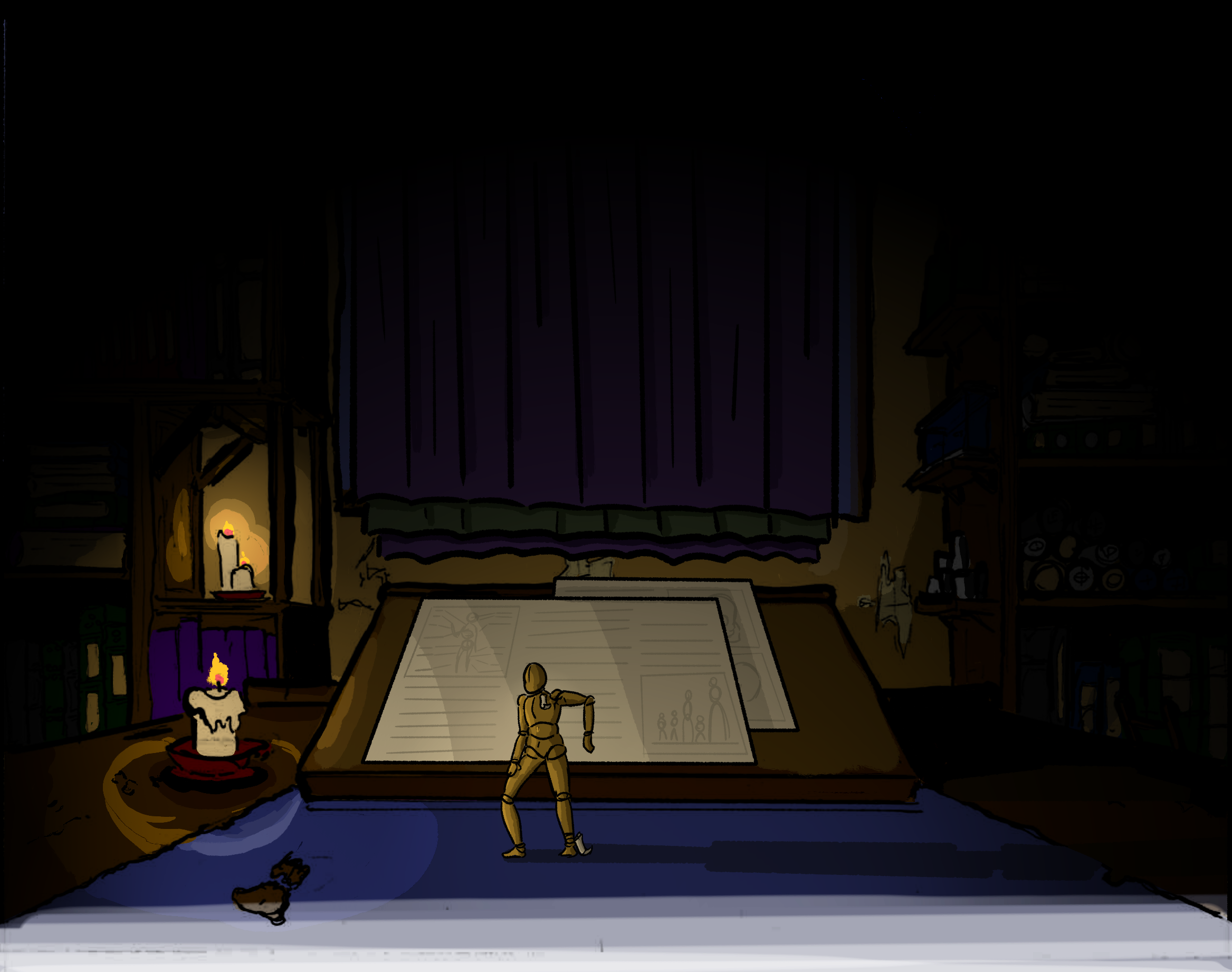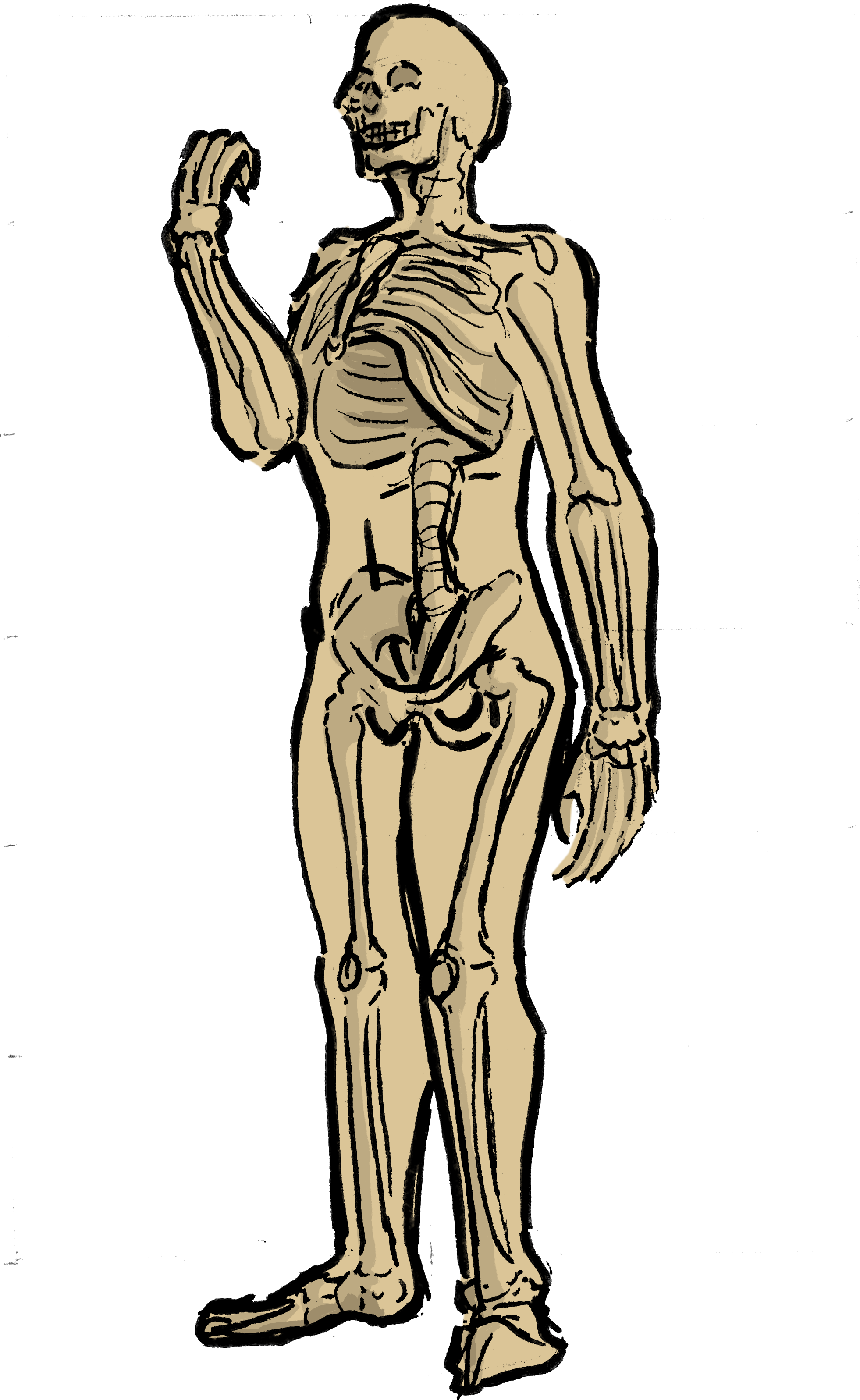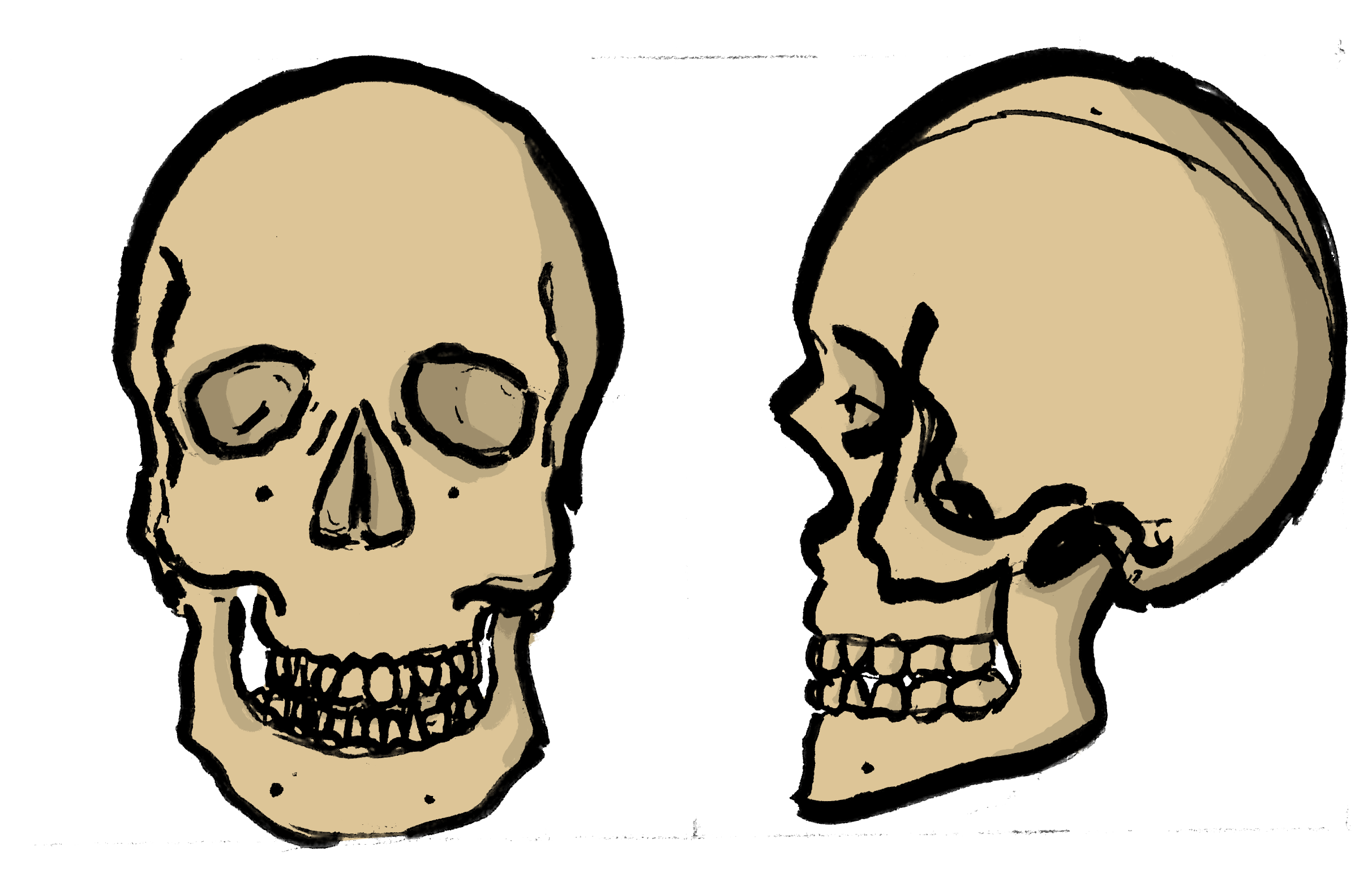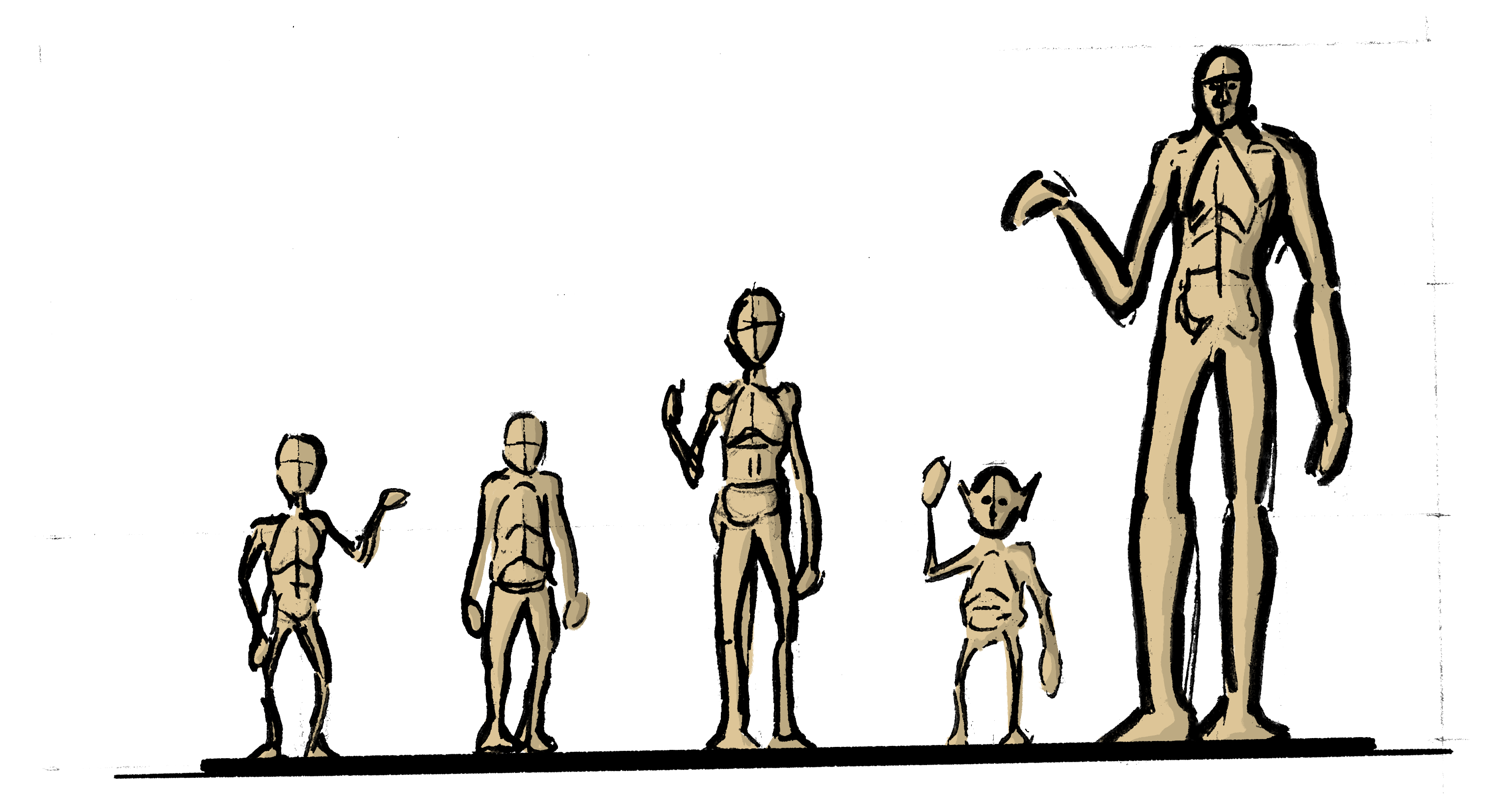Homini
As you take the ape-shaped doll from the set, you feel it move. You drop it out of surprise, only for it to fall back on the table, motionless. You aren't sure what to make of that.
A few documents seem to have appeared next to where the doll fell. A small note has been placed on top of the pile.
Along with Birdkins and Condoris, Hominis are one of the three dominant species of Humans in this world. They are ape-like, with a pronounced neoteny, very little hair, and a low level of sexual dimorphism. A wide range of ethnic groups exist within the Cylinder, especially among nomadic peoples. Hominis are extremely social creature. I am not certain of whether this is because of their larger size, their social behavior, or something else entirely, but their societies seem to almost always come with some sort of systemic oppression among each others and toward other human species. ... To be honest, there is both a lot I could say about Hominis, and very little that would be actually useful for you now. So, here is my way to view things: I will simply à̶̫͚͔d̵͈̥̄̀̌j̷̪͉̚u̸̡̩̥̬̿ś̴̤̯̿̚͜t̴̡͚̮́̏ the wooden doll you took. Should you take it, documents and data related to Condoris will appear to you.. (...) The first document you come across is an excerpt from a medical book.
by Pouaseuille
by Pouaseuille(...) Hominis are great apes, and share numerous characteristics with related species of that family. Like all other primates, they have forward-facing eyes, and their hands have opposable thumbs. Like other apes, they are larger than a typical monkey and do not have a tail. Hominis also share more specific characteristics with a few, more closely related great apes. Their hair density, and social structures, are similar to that of Monpanzees and Woodfays. The species' facial features and bipedalism are particularly similar to that of Woodfays. Hominis are the most widespread and abundant ape species, being present around the entire Cylinder. In fact, the sum of all other great ape populations is estimated to be lower than the Cylinder's Homini population by a factor of two to five, with Woodfays being the second most numerous species. Although other ape species are notably intelligent and capable of tool use, Hominis are the only one commonly refered to as humans, along with Birdkin and Condoris. They are commonly taking part in complex competing and cooperating structures, both in nomadic and in sedentary civilizations. (...)
(...) Hominis are believed to be a fairly old species in the Cylinder. They exist and organize the world everywhere around them, and appear to have adapted to a wide array of environments. Numerous homini populations and ethnic groups are recorded, with a high level of morphological variability. In fact, there is a 15-fold mass difference between the lightest and the heaviest populations, and a factor of three between the smallest and the tallest Hominis. (..)by Pouaseuille
Among all human species, something always fascinated me with Hominis. Of course, they are flightless, heavier and more expressive than other species. But this is not quite what fascinates me. Biology, all that. Surprising, for sure. Interesting features, but not really my center of interest. No, the real odd thing is how they always seem to see themselves as unique. It is just so common in homini-dominated societies, especially in sedentary civilizations, to see them sincerely believe they are the reason why the Cylinder was created. Or the oldest human species, the creators of all civilizations, somethings of the sort. I do not quite believe this comes from some sort of intrinsic nature of hominis. Why would it? They are a particularly tribal bunch, which means they are prone to the "Us and Them" mindset, yes, but so are the Birdkins, and they much more rarely display these behaviors. Even Condoris function in close familial structures, which could make them just as sensitive to these mindsets, which they do not. Hominis are not a particularly notable species. They are not the heaviest animals in this world. They are flightless, which means they are not the most capable animals either. While their intraspecific diversity is great, sedentary Hominis are not that diverse, and they are much less so than Birdkins or Condoris. They never form civilizations on their own, always sharing their cities and countries with other beings. So why? Why do that arrogant feeling of uniqueness remains so often in large cities?






I wonder what our narrator's species is. I have a feeling it's not quite anything written about. Does the blank space serve any purpose? This article gives me the "humans are actually space orcs" vibe. So many negative characteristics of violence, oppression, and narcissism. But, somehow, they find the time, energy, and compassion to make large things. Does one give to the other, or will homini just be homini?
Thanks for this comment! I cannot quite answer about the narrator's species just yet. The blank spaces are yet to be filled, or are mistakes on my part: pieces of text I forgot to finish after I commented them. I tried to remove some of them. I can see the "humans are space orcs" impression from this! I'm guessing hominis are just ambivalent like that, they come with all of the positive and negative packaging.